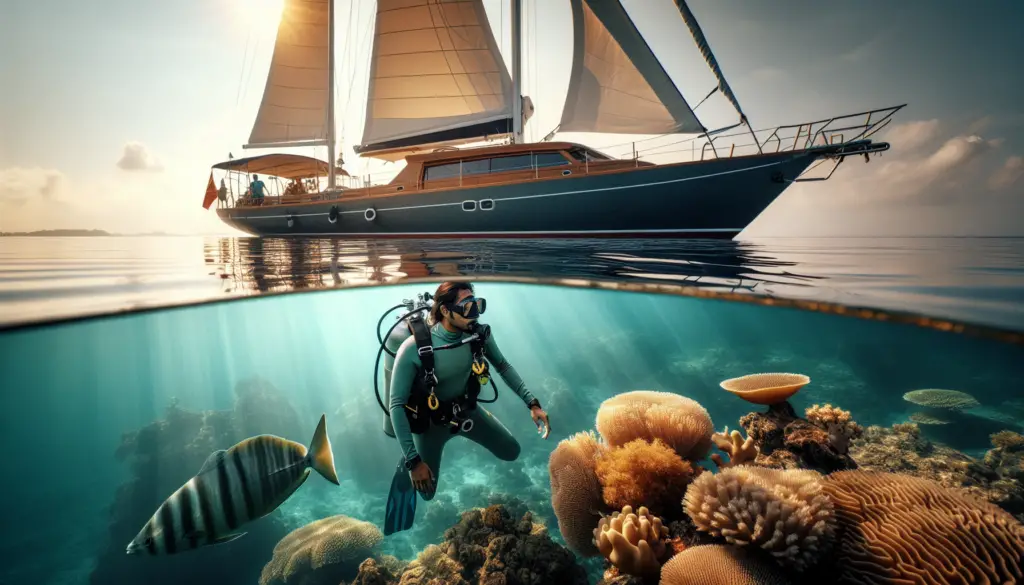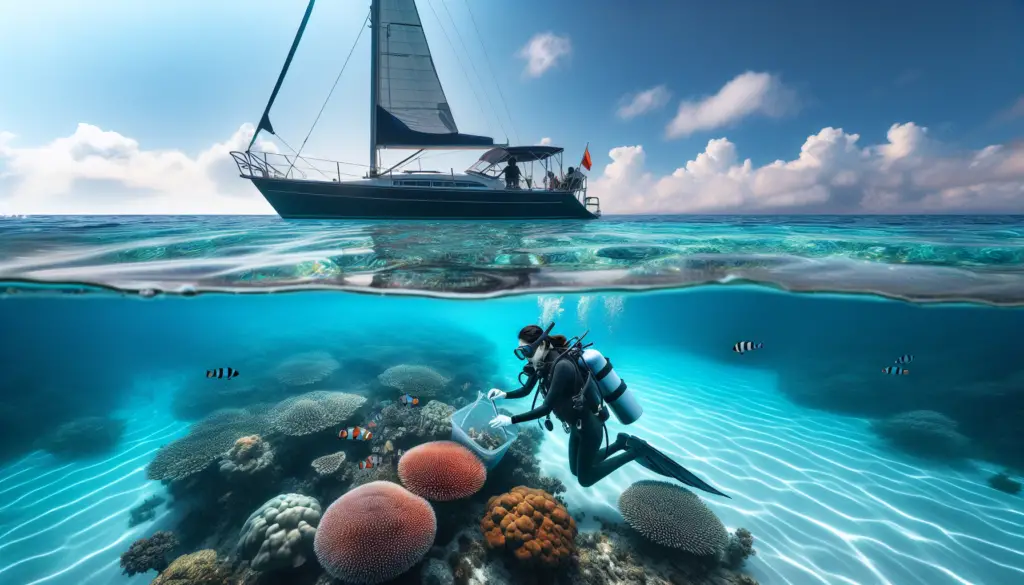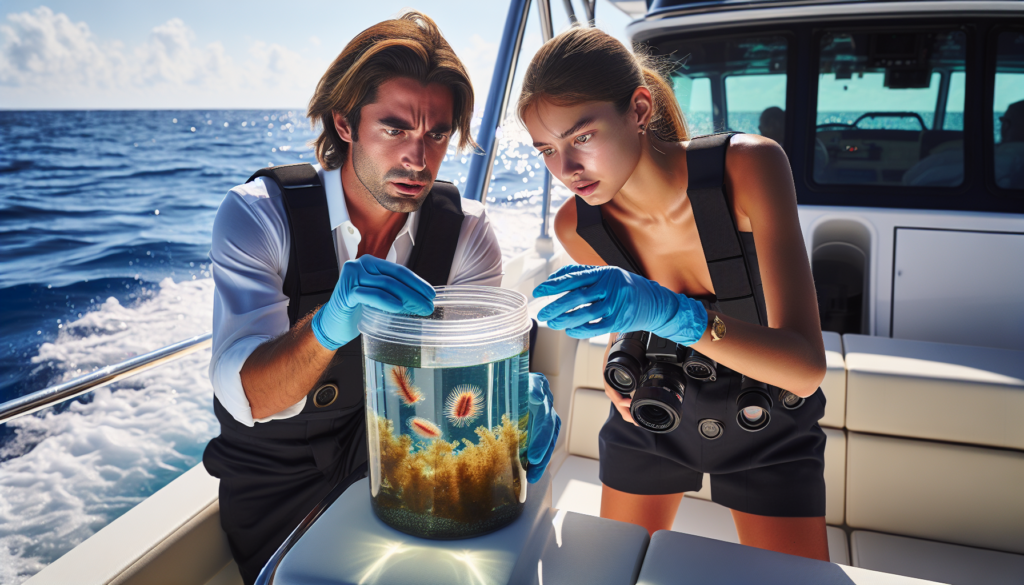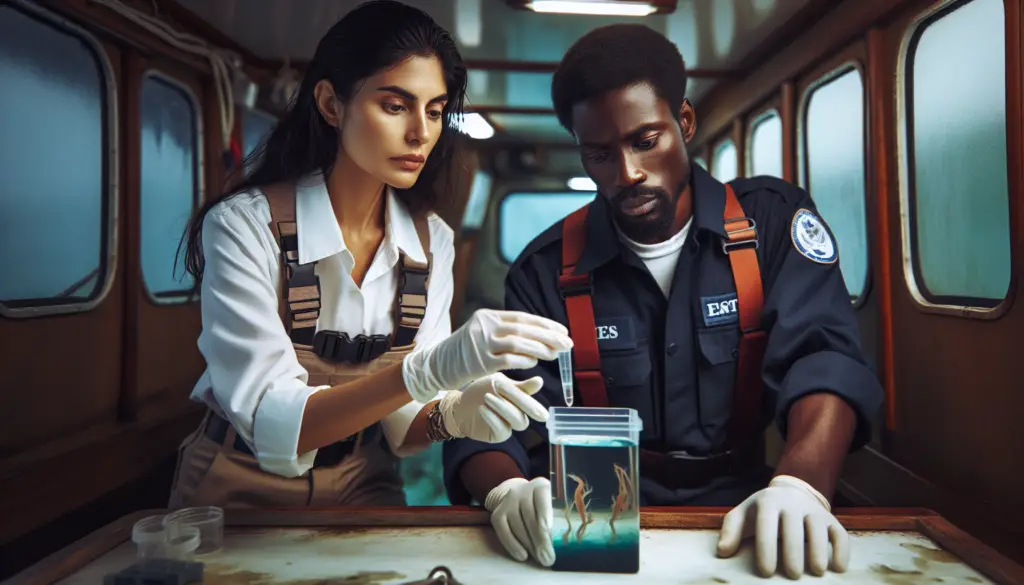You might not initially think of sea-faring enthusiasts and marine conservationists as partners, but the reality is quite surprising. Across the globe, a unique alliance between boating clubs and organizations devoted to protecting the planet’s water ecosystem is emerging. The article “The Partnership Between Boating And Marine Conservation Organizations” underlines this exceptional relationship. You’ll be able to explore how these seemingly different entities work hand-in-hand towards the common goal of preserving marine life and ecosystems, while still enjoying the pleasure of sailing. So, get ready to discover how your love for boating can contribute significantly to the cause of marine conservation.

Understanding the Importance of Marine Conservation
Marine conservation, in essence, is about preserving and protecting the ocean’s biodiversity, inhabitants, and ecosystems from harm. It’s a global commitment that depends on our actions to maintain the vital balance of our world’s oceans.
Explaining the Concept of Marine Conservation
Marine conservation is a practice that includes the protection and maintenance of ecosystems in oceans and seas. It’s focused on limiting human-caused harm to marine ecosystems, restoring damaged marine environments, and preserving vulnerable species in the marine biosphere. The conservation strategies often include establishing protected areas, setting species fisheries limits, and reducing pollution.
Significance of Marine Conservation
The oceans are the earth’s lungs, providing most of the oxygen we breathe. They regulate our climate, sequester carbon, and are home to incredible biodiversity. The importance of marine conservation lies in preserving our oceans’ vitality and our life on Earth.
Impacts if Marine Conservation is Neglected
Without marine conservation, the consequences can be dire. Disregarding it could lead to a decline in marine biodiversity, with critical species disappearing entirely, causing imbalances in the ecosystem. We’ll also see negative impacts on the human population like the shrinking of fish stocks, which are vital protein sources for billions worldwide.
Role of Boating Industry in Marine Conservation
The boating industry has a significant role in marine conservation. While it plays a part in the damaging of ecosystems, it’s important to note the industry’s efforts to mitigate these impacts.
Boating Industry’s Contribution to Marine Pollution
The boating industry can cause pollution through the discharge of waste, fuel, and oil into marine environments. Additionally, boating activities can lead to physical disruption of aquatic habitats through activities like dredging and anchoring.
Steps Taken by Boating Industry for Conservation
However, the industry is taking steps towards conservation. It’s adopting cleaner fuel alternatives and more energy-efficient designs to reduce emissions. They’re promoting responsible boating practices and financing research into new marine conservation technologies.
Public Perception of Boating and Its Impact on Conservation
Public perception plays a big role in influencing the boating industry’s conservation efforts. If people understand the ecological impacts of boating, they can support regulations and initiatives aimed at reducing pollution and harm to marine life.

Evolving Partnerships Between Boating and Conservation Organizations
Recent years have seen a growing number of partnerships between boating and marine conservation organizations. These partnerships have been instrumental in promoting sustainable practices.
Understanding the Need for Collaborations
Collaborations are necessary to effectively address the ecological challenges posed by boating. By combining their knowledge, resources, and efforts, these organizations can make a larger impact on marine conservation.
Initial Steps in Partnerships
The initial partnership steps often involve outlining common goals, sharing resources, and strategizing for mutual benefits. Both sides can contribute their respective expertise to create more dynamic and effective approaches to marine conservation.
Success Stories of Collaborations
These partnerships have resulted in successful outcomes. They’ve provided essential funding for marine conservation, led educational campaigns about responsible boating, and worked on innovative solutions for maintaining biodiversity.
Challenges Faced in Establishing Partnerships
However, establishing these partnerships is not without its challenges. There can be conflicts of interest, logistic issues, and sometimes, limitations of resources.
Conflicting Interests
Conflicting interests often arise between profitability and sustainability. The boating industry needs to balance their economic aims with their conservation commitments.
Difficulties in Coordination
Coordinating efforts between different organizations can be logistically complicated, with potential challenges in communication, decision-making, and resource allocation.
Funding Constraints in Partnerships
Funding is a crucial factor in the success of these partnerships. Limited resources can impede the scope and effectiveness of conservation initiatives.

Key Players in Boating and Marine Conservation Partnerships
There are many key players involved in these partnerships, including leading conservation organizations, prominent players in the boating industry, and those who have established successful collaborations.
Leading Conservation Organizations
Leading conservation organizations like the World Wildlife Fund (WWF) and the Marine Conservation Society play crucial roles in these partnerships, often steering the direction of conservation initiatives and providing essential research, resources, and expertise.
Prominent Players in the Boating Industry
Within the boating industry, companies like Brunswick Corporation and MarineMax have taken significant steps to promote and support marine conservation, engaging in partnerships with conservation organizations and championing sustainable practices.
Noteworthy Collaborations
Notable collaborations include partnerships between BoatUS and the American Association of Underwater Sciences (AAUS), and between West Marine and The Ocean Foundation. These collaborations highlight the possibilities of working together to achieve greater conservation outcomes.
Importance of Legislation in Enabling Partnerships
Legislation plays a central role in enabling and supporting these partnerships. Laws provide the framework for these collaborations, while policymakers can incentivize or enforce sustainable practices.
Laws Supporting Collaboration
Laws that support marine conservation and collaborations can greatly enhance these partnerships. For example, regulations that require the boating industry to adhere to certain environmental standards encourage them to engage with conservation organizations.
Role of Policy Makers
Policy makers have the power to drive these collaborations. Through legislation, they can encourage boating industry leaders to collaborate with conservation organizations to create innovative solutions.
Success and Failure of Legislative Interventions
Understanding the successes and failures of legislative interventions can guide future policymaking. Effective legislation not only promotes conservation but also strengthens the sustainability and profitability of the boating industry.

Impact of Partnerships on Marine Conservation Efforts
Partnerships between the boating industry and conservation organizations have significantly impacted marine conservation. They have led to improvements in conservation outcomes, contributions to research, and the promotion of sustainable practices.
Improvement in Conservation Outcomes
Through their joint efforts, these partnerships have achieved noticeable improvements in marine biodiversity protection, reducing pollution levels, and fostering sustainable fishing practices.
Contribution to Research
Moreover, these partnerships have contributed significantly to research, with collaborations often involving studies into marine ecosystems, the impacts of boating, and the effectiveness of conservation methods.
Promotion of Sustainable Practices
Promoting sustainable practices in boating is another significant outcome of these partnerships. Efforts include enhancing fuel efficiency, reducing marine waste, and promoting eco-friendly boating practices.
Role of Technology in Strengthening Partnerships
Technology has a crucial role in strengthening these partnerships. It provides innovative solutions to conservation challenges and offers new ways to engage and collaborate.
Use of Technology for Conservation
Technology aids in conservation by providing tools for monitoring marine health, tracking wildlife, and analyzing data. Innovations like remote sensing devices, satellite tagging, and drones have revolutionized the way we understand and protect our oceans.
Technological Interventions in the Boating Industry
In the boating industry, technology has led to more efficient engines, eco-friendly materials, and smarter navigation systems. These advancements can reduce the environmental impact of boating.
Innovation in Partnership Models Due to Technology
Digital platforms facilitate collaboration, allowing for easy communication, data sharing, and coordination. They can spark innovation in partnership models, making collaborations more efficient and impactful.
Future Prospects in Boating and Conservation Partnerships
The future holds promising trends for partnerships between boating and conservation organizations. More integrated, sustainable, and impactful collaborations are on the horizon.
Emerging Trends
Emerging trends include greater integration of technology, increased public engagement, and a stronger emphasis on sustainability in boating practices.
Long-Term Sustainability of Partnerships
The long-term sustainability of these partnerships depends on persistent commitment from both parties, ongoing research, and adaptive strategies to address emerging challenges and opportunities.
Opportunities for Expansion and Increased Impact
There are numerous opportunities for expanding partnerships and increasing impact. These include exploring new technological solutions, policy interventions, and collaborative models.
Case Studies of Successful Partnerships
Examining successful collaborations can give us valuable insights into creating lasting and effective partnerships.
Examining the Success Factors
Understanding the elements that contribute to successful collaborations – such as shared goals, mutual respect, and clear communication – can guide future partnerships.
Lessons Learnt
Learning from past partnerships, both their successes and failures, can inform and improve future ventures. It’s crucial to adapt and evolve strategies based on these lessons.
Adaptation and Replicability of Successful Models
Duplicating successful models in other contexts can greatly enhance marine conservation efforts worldwide. However, it is equally important to adapt these models to the specific challenges and opportunities of each unique environment and economy.
In conclusion, partnerships between boating and marine conservation organizations play a vital role in preserving our oceans’ health. By continuing to collaborate, innovate, and strive for sustainable practices, we can ensure a brighter future for our planet’s marine ecosystems.

